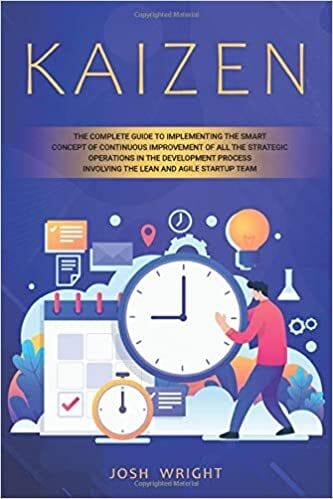We all strive to be perfect. While that’s nearly impossible, we can usually find ways to improve through quality management. This is especially true in business and engineering.
When working to improve products and services, it’s useful to have a framework. That’s where quality management comes in. It can make the difference between high customer satisfaction and a product’s failure.
But what is quality management and should you study it? Let’s see why implementing quality management is vital to the process, approach, and execution of a project’s goals.
What Is Quality Management?
Quality management is the system by which individuals, teams, and companies ensure products and services are at their highest level. It requires closely monitoring each step of the development cycle to avoid mistakes.
Thanks to the work of legendary management consultant W. Edwards Deming and his “statistical product quality administration,” quality management was born. Deming had a hand in Japan’s postwar boom and its unique style of quality management called “kaizen,” meaning improvement.
A quality management system (QMS) involves evidence-based decision making, process improvement, and quality assurance for a better product and higher customer satisfaction.
What Is Quality Management Used For?
Quality management’s uses are extensive. Keep reading to find out what they include.
- Ensuring the success of products and services. This is the goal of any project. With quality management skills, your team can discover the potential risks of a product to minimize failure.
- Eliminating defects and design flaws. Imagine turning in a term paper without editing it. Quality management is like an editing process for a product’s development.
- Engaging in continuous improvement (CI). Customer satisfaction depends on continuous improvement of quality.
- Earning customers’ trust. If you want future success, getting the design process right is crucial. Customer satisfaction will crash if you roll out a product riddled with flaws. By implementing QMS, your team can better count on quality.
Types of Quality Management
Quality management is a multi-step process. These are laid out in the International Organization for Standardization’s 9000 family.
Failure Mode and Effects Analysis (FMEA)
This measures the odds of a product failing. There’s always a balance of risk and reward in production. And the FMEA is like risk analysis.
The FMEA process accounts for unintended consequences, the reliability of a product, and customer satisfaction. A skilled development team will consult the FMEA, make improvements, and adjust their business accordingly. With proper risk management skills, this form of quality management really pays off.
Relationship Management
Having constant communication with customers can improve a product. Learning how to market via Instagram, for example, can gather invaluable customer feedback.
Communicating effectively also sends a welcoming message to potential customers. Relationship management, while not a traditional aspect of a QMS, is more and more important.
Learning Quality Management

So, quality management interests you. Where do you go from here? Luckily, there are quite a few options to explore the area. Like most careers, there’s not just one path. Some might want only an associate degree. Others may need an MBA for their goals.
Let’s break down how long it takes to learn quality management and the required educational steps.
How Long Does It Take to Learn Quality Management?
It takes six to nine months to learn quality management. While quality management might seem like a straightforward process, it takes time, practice, and long-term education. Proper training includes certifications, degrees, and learning good business practices.
How to Learn Quality Management: Step-by-Step
There are a few great ways to equip yourself with the tools needed for effective quality management. Let’s check them out below.
- Ensure that you can work with a team. First and foremost, you need to work on teamwork. If you consider yourself above others, then you will struggle. Things like team-building activities can help you better work alongside others.
- Consider schooling. Getting an associate degree or bachelor’s degree in business is a good way to learn the fundamentals. Earning an MBA or taking various project management courses will help you build up your arsenal of applicable skills.
- Explore resources The internet is full of great business resources to help you perfect your quality management methods.
- Earn a certification. While optional, a certificate in QMS can be a massive benefit when applying for jobs. Along with other crucial business skills to add to your resume, certifications show employers that you have focused on this area.
The Best Quality Management Courses and Training
There are a ton of quality management training and online courses to explore. We’ve provided our favorites below.
Best Online Quality Management Courses
Remote courses allow for flexibility and top-quality instruction, even for advanced topics. Let’s see some of the top-rated quality management courses below.
ISO 9001:2015 Quality Management System Auditor Course
- Provider: Udemy
- Duration: 3.5 hours
- Prerequisites: None
- Price: Varies
As we’ve briefly mentioned, ISO 9000 is the industry standard for quality management practices. This tremendous introductory course focuses on the most up-to-date processes of the industry. In this class, instructor Cristian Vlad Lupa shows students how to implement a successful quality management system (QMS) for their projects.
Although you don’t need to be familiar with a QMS beforehand, those with previous experience will benefit when taking this course offered by Udemy.
Operations Management: Strategy and Quality Management for the Digital Age
- Provider: Coursera
- Duration: 18 hours
- Prerequisites: None
- Price: Varies
Taught by accomplished professor Udatta Palekar from the University of Illinois, this quality management course teaches you everything you need to know about continuous improvement.
You will learn various analytical techniques, observation skills, and international standards for improving your work. Along with learning great methods to improve products and services, you will also learn the useful Six Sigma for optimal project management.
Free Quality Management Courses
If you don’t have the funds, or would like to explore the subject before investing, there are some great free classes we have listed below.
Quality Management Essentials Simplified
- Provider: Udemy
- Duration: 30 minutes
- Prerequisites: None
- Price: Free
From Udemy comes a quick and easy tutorial in a QMS. In total, there are 14 lectures, all filled with short yet informative videos.
You will learn the difference between quality control and quality assurance, the benefits of a QMS, and more. There’s nothing to lose by engaging with this free quality management course.
ISO 9001:2015 Foundations Course
- Provider: eTraining
- Duration: 8 hours
- Prerequisites: None
- Price: Free
If you are looking for something a bit more substantial, eTraining has you covered. This course teaches you the fundamentals of the international standards involved in quality management.
You will learn best practices, methods to succeed, and ways to avoid flaws and defects. This free online course even prepares you for certification exams. This is an invaluable tool and completely free.

"Career Karma entered my life when I needed it most and quickly helped me match with a bootcamp. Two months after graduating, I found my dream job that aligned with my values and goals in life!"
Venus, Software Engineer at Rockbot
Best Quality Management Books
Like many business practices, quality management has had a lot published about it. Below are some of the most notable books written on the topic.
Kaizen: The Complete Guide to Implementing the Smart Concept of Continuous Improvement of All the Strategic Operations in the Development Process Involving the Lean and Agile Startup, Josh Wright

In Josh Wright’s text, readers will get a comprehensive Kaizen crash course.
Kaizen’s main emphasis is on continuous improvement. This is a fantastic business resource for those starting their own business or those entrenched in business processes that aren’t getting satisfactory returns.
You CAN Stop Stupid: Stopping Losses from Accidental and Malicious Actions, Ira Winkler

This notable book shows you some of the costliest and most easily avoidable mistakes in production. It explores how companies can ignore quality management issues, dismissing them as outside variables and customer issues.
It provides some sound methods to tweak your company and business processes for your projects to thrive. There is a considerable emphasis on cybersecurity, countermeasures, and a fascinating look at different ways famous companies overcame malicious attacks and simple deficiencies.
Quality Management Certifications
As we briefly mentioned, certifications show hiring managers that you are adept in a particular area. Consider these more specific mini-degrees to stand out among the competition.
Leadership and Management Certificate from Wharton
The Wharton School of the University of Pennsylvania offers excellent education in numerous subjects. It’s a great place to learn useful concepts for quality management.
This certificate specializes in leadership and business. As quality management includes a large emphasis on effective leadership and managerial skills, this certificate is a fantastic addition to a quality manager’s resume.
Professional Program Certificate in Six Sigma and Lean: Quantitative Tools for Productivity and Quality
From the Technical University of Munich comes this certification in different quality management tools. Learning things like Six Sigma, Agile, and more will allow you to be aware of risks, deficiencies, and potential flaws in your business processes.
This certificate is packed full of useful info, like how to maximize quality assurance while staying within your deadline.
The program lasts from 18 to 24 weeks and is entirely flexible. At the end of the certification course, you’ll be able to earn your Six Sigma yellow belt, a significant step towards maximizing your quality management knowledge.
Best Online Quality Management Resources
Since quality management is such a large topic, there is no shortage of great resources to stumble upon. Below are a few good options.
ASQ

ASQ, or the American Society for Quality, can be one of the most comprehensive and helpful tools in your education. ASQ has pages upon pages regarding quality management and QMS. It even provides study material for exams, blogs, and career resources;
Through ASQ’s excellent resources, individuals can train, test, and succeed in QMS. Afterward, you can become a full-fledged member and connect with the lively forums. Meeting and interacting with other quality managers is a great way to share and collaborate on ideas.
Quality Management System

The Quality Management System is another excellent website for various QMS resources. The site has educational resources on QMS, business processes, quality assurance, process improvement, and customer satisfaction.
It also offers various career resources, articles, and even an in-depth history of quality management.
Should You Study Quality Management?

Whether you consider yourself a perfectionist or not, quality management can help you make your product better. Learning things like predictive analytics and risk management are also a plus and can make quality management easier.
Why let the development cycle pass you by without checks or balances? Considered one of the top business practices, quality management can improve customer satisfaction levels, achieve continuous improvement, and lead to overall success in the supply chain.
Keep in mind, you should prepare yourself in various ways. Feel free to explore earning an online MBA, take quality management courses, and use reading material.
If you want a more direct role in the business process, quality management is perfect for you. No matter the industry, quality management can make a world of difference.
About us: Career Karma is a platform designed to help job seekers find, research, and connect with job training programs to advance their careers. Learn about the CK publication.



